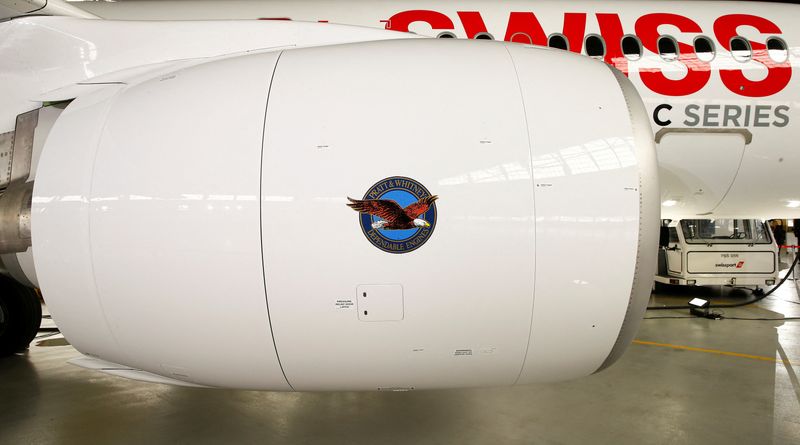By Allison Lampert
(Reuters) - Aerospace companies are pushing U.S. regulators to simplify domestic rulemaking, after delays led the country's aircraft engine makers to a European agency to meet a global emissions standard on time, executives and regulators said.
Raytheon Technologies (NYSE:RTX) Corp's Pratt & Whitney and General Electric (NYSE:GE) Co went to Europe's aviation regulator to comply with the United Nation standard on non-volatile particulate matter (nvPM), set to curb soot particles.
The workaround with Europe did not delay jet engine deliveries, but did add costs and work to already taxed suppliers as travel has rebounded, a senior industry source familiar with the matter told Reuters. The source, who asked not to be identified, could not specify the costs.
Separately, European planemaker Airbus SE (OTC:EADSY) is tempering the pace of planned production increases due in part to supply chain stress.
The engine makers worked with the European Union Aviation Safety Agency (EASA) after combined efforts by the Federal Aviation Administration and the Environmental Protection Agency missed the U.N. standard's Jan. 1, 2023, deadline. The workaround is possible because of the interconnected nature of the global aerospace industry, but the situation is not ideal.
It comes as Washington's traditional aviation leadership has grown more diluted after the crisis over the design and approval of Boeing (NYSE:BA)'s 737 MAX.
"Delayed adoption of the (U.N.) rule highlights the importance of streamlining the rulemaking process in today's global market to ensure U.S. competitiveness," said David Silver, vice president of civil aviation for the Aerospace Industries Association (AIA), an American trade association representing manufacturers and suppliers of aircraft.
AIA warned in 2021 about delayed rulemaking involving the U.S. FAA and EPA.
EASA said it went ahead with paperwork for the U.S. enginemakers and the FAA supported it.
A GE spokesperson said the company complied with EASA's rules while Pratt referred questions to AIA.
In 2020, the U.N. International Civil Aviation Organization (ICAO) adopted the standard. But ICAO cannot impose its will on governments, so the United States, Europe and other countries must translate the global engine standards into national rules.
It was first vetted by the EPA, which produced a rule effective Dec. 23, 2022.

But the changes must also be signed off by the FAA, which said it "expects to complete the final rule later in 2023," so companies can certify their engines domestically.
A U.S. government source said the rulemaking process was delayed because of work by the agencies on a separate ICAO carbon emissions standard for aircraft.